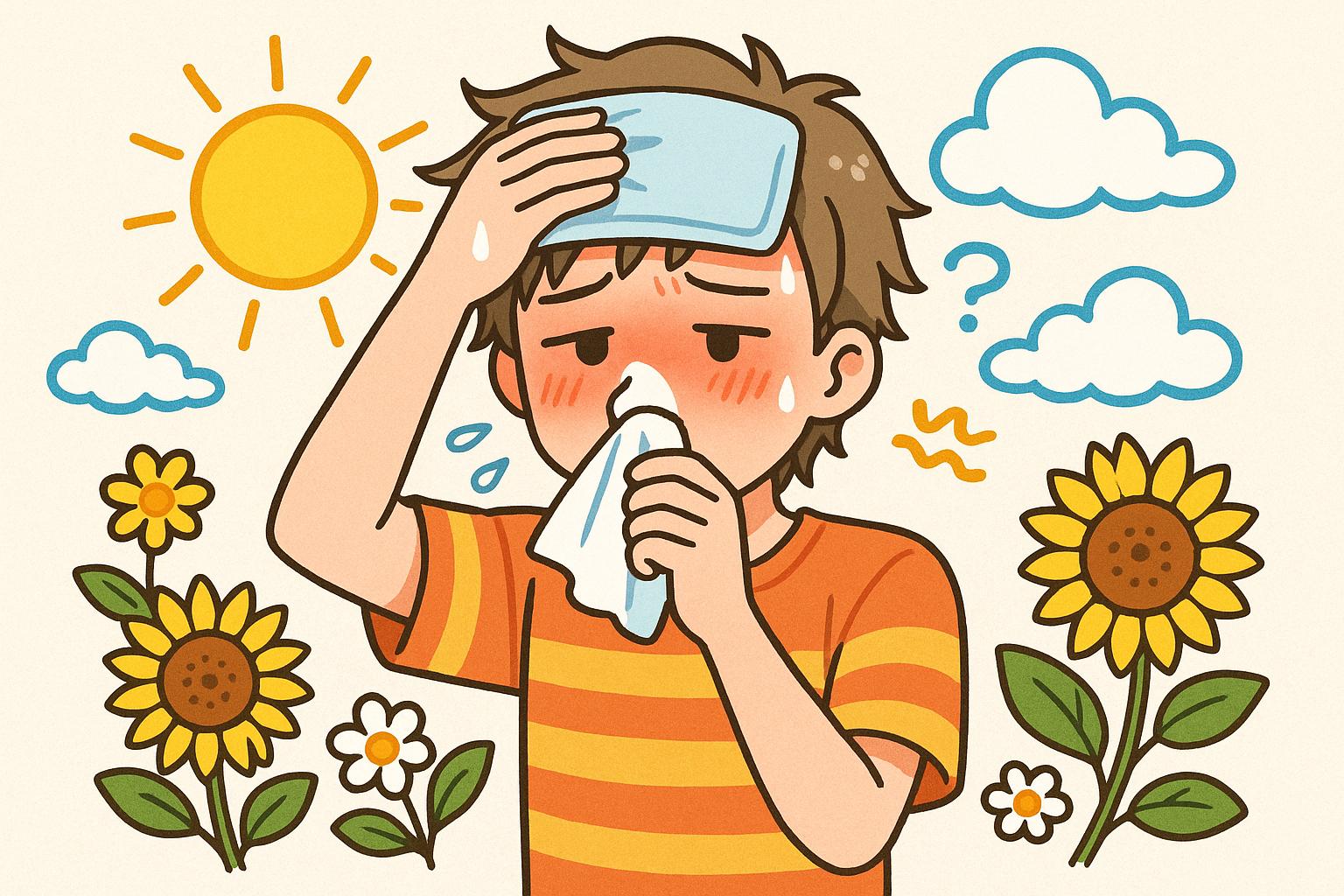Reports of ‘summer flu’ are rising across the UK, challenging traditional views of flu season. Medical experts highlight a mix of viruses causing winter-like symptoms in warmer months, urging vigilance and year-round hygiene to combat the surge.
Despite the continuation of spring, reports of an unexpected illness referred to as “summer flu” are circulating across the UK, leading many to question the conventional perception of flu season. Observers on social media have taken to platforms like X, formerly Twitter, to express their discomfort and confusion over experiencing flu-like symptoms during what is usually considered a warmer, less illness-prone period. One user lamented, “Told a G only idiots catch cold in summer bro woke up with a sore throat and flu today,” highlighting the growing sentiment that summer should be free from such ailments. Others echoed similar sentiments, with comments like “What is this flu/cold?? These things don’t happen in summer,” illustrating a collective bafflement at the situation.
Medical experts acknowledge that while the flu is typically associated with the colder months, it is indeed possible to experience flu-like symptoms in the spring and summer. Acknowledging this, Healthline states, “The flu is traditionally thought of as an illness that strikes in the fall and winter. But many people experience flu-like symptoms in the summer months.” This discrepancy can be attributed to various factors, including different viral infections that can mimic flu symptoms, such as enteroviruses and other respiratory viruses prevalent in warmer weather.
Symptoms of this summer flu appear consistent with those of traditional influenza. Individuals often report sudden high temperatures, body aches, fatigue, and respiratory symptoms like a dry cough and sore throat. These characteristics can lead to confusion, especially as they closely align with common winter flu signs. According to the NHS, symptoms also encompass gastrointestinal issues such as diarrhoea and tummy pain, marking a particularly challenging experience for those affected.
It’s essential to consider that while true influenza may be less common in summer months, other viral infections or even bacterial ailments like strep throat can lead to similar health challenges year-round. Experts from Midland Health emphasise the importance of seeking medical guidance if symptoms are severe, particularly for vulnerable populations, including the elderly and those with underlying health conditions.
Although the flu vaccine is primarily promoted for the autumn, public health organisations continue to stress the necessity of appropriate protective measures throughout the year. This includes maintaining good hygiene practices such as regular hand washing and avoiding close contact with those who are ill. Individuals experiencing flu-like symptoms are also urged to rest, hydrate, and stay home to prevent spreading potential infections.
Interestingly, as societal norms have shifted post-pandemic, the ongoing prevalence of respiratory illnesses during non-traditional flu seasons calls into question the adequacy of public health messaging and preparedness. As one health expert noted, “While most people think flu is a winter problem, our health systems must be vigilant year-round.” Thus, the phenomenon of summer flu serves as a reminder of the complexities of respiratory illnesses and the need for continued awareness and education, irrespective of the season.
This ongoing situation invites further investigation into respiratory health trends and the impact of climate on viral transmission, particularly as global weather patterns continue to evolve. For now, those suffering should not hesitate to seek care, especially if symptoms escalate, as the fluid nature of respiratory illnesses makes vigilance essential in every season.
Reference Map:
- Paragraph 1 – [1], [2]
- Paragraph 2 – [1], [3], [4]
- Paragraph 3 – [2], [5]
- Paragraph 4 – [3], [6]
- Paragraph 5 – [7]
Source: Noah Wire Services
- https://www.theargus.co.uk/news/25203895.summer-flu-here-bouts-illness-sweeps-uk/?ref=rss – Please view link – unable to able to access data
- https://www.theguardian.com/society/2025/jan/12/flu-who-is-at-risk-and-what-precautions-are-recommended – This article from The Guardian discusses the flu season in England, highlighting who is at risk and the recommended precautions. It notes that flu symptoms can develop quickly and may include a sudden high temperature, aching body, fatigue, dry cough, sore throat, headache, difficulty sleeping, loss of appetite, diarrhoea or tummy pain, and feeling sick or being sick. The article also emphasizes the importance of rest, hydration, and the flu vaccine for those eligible.
- https://midlandhealth.co.uk/2024/07/31/why-am-i-getting-flu-symptoms-in-the-summer/ – Midland Health’s article explains that while true influenza is less common in summer, other viral infections like enteroviruses, including coxsackievirus and rhinovirus, can cause similar symptoms. It also mentions that bacterial infections such as strep throat and bronchitis can occur year-round. The article advises contacting a healthcare provider if experiencing severe symptoms or if at higher risk due to age, chronic illness, or a weakened immune system.
- https://www.nhs.uk/conditions/flu/ – The NHS provides comprehensive information on flu symptoms, which can include a sudden high temperature, aching body, fatigue, dry cough, sore throat, headache, difficulty sleeping, loss of appetite, diarrhoea or tummy pain, and feeling sick or being sick. The NHS also outlines who is eligible for a flu vaccine and offers guidance on how to get vaccinated.
- https://www.fitfortravel.nhs.uk/advice/disease-prevention-advice/flu-influenza – Fit for Travel outlines the clinical aspects of flu, noting that symptoms can develop within a few days of infection and most people begin to feel better within a week. However, complications can affect those aged 65 or over, pregnant women, children under 6 months, and individuals with long-term medical conditions or weakened immune systems. The article also discusses signs and symptoms, treatment options, and preventive measures.
- https://newhealthinsurance.com/2025-flu-symptoms/ – This article provides an overview of the 2025 flu symptoms, noting that they can range from mild to severe. Common signs include fever and chills, cough and sore throat, muscle aches and fatigue, and headaches and runny nose. The article also highlights severe symptoms to watch for, such as high fever, difficulty breathing, chest pain, confusion or dizziness, and severe muscle or body aches.
- https://www.tanglewoodhealth.com/summer-flu/ – Tanglewood Health discusses summer flu symptoms, which can include a sore throat, headache, swollen lymph nodes, body and muscle aches, fever, and fatigue. The article also mentions COVID-19 symptoms, noting that people with COVID-19 can experience a wide range of symptoms, including a dry cough and shortness of breath, and may also experience fever, chills, muscle pain, headache, sore throat, and a new loss of smell or taste.













